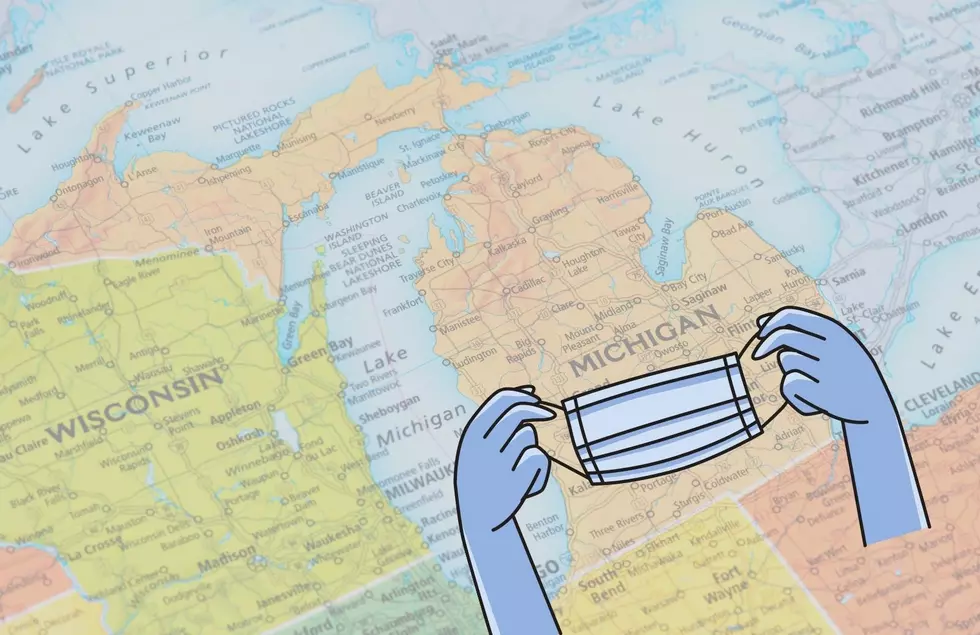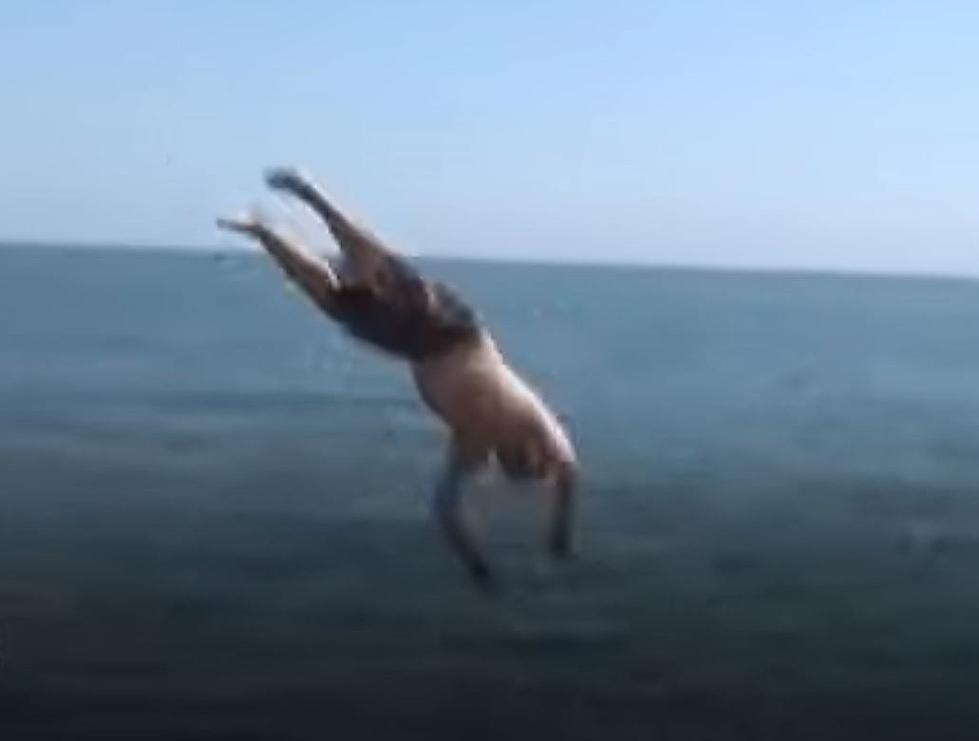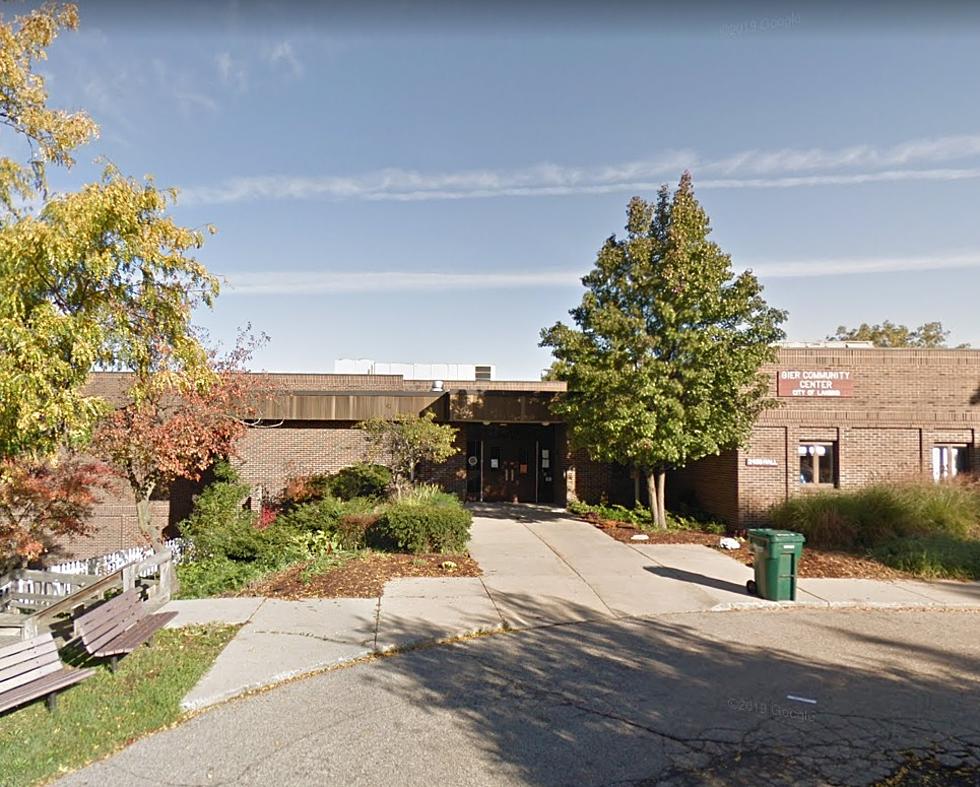
University Of Michigan Students Being Asked To Stay Home
The University of Michigan is taking some steps to help stop the spread of COVID-19 amongst its students, one of those ways is reducing the occupancy in the residence halls, and allowing single-room occupancy.
This news coming from a letter which was written by the school's president, Mark S. Schlissel.
This shift is being made at the quicking rising number of COVID-19 tests in Michigan.
You can read the full letter, from WILX, below.
Our current semester has been like no other, with our students, faculty and staff exhibiting innovation and resilience as we taught, learned, advanced research, cared for patients and served our communities under the most challenging of circumstances. We studied in tents, wore PPE in our labs, worked from home and discovered new ways to share our creativity and access to museums and performances.
It has also been difficult. We were forced to navigate challenging modes of instruction, serious disruptions to work and personal lives, and fear and anxiety from living with COVID-19 in our community.
The pandemic hasn’t gone away, COVID-19 case numbers continue to increase in Michigan and around the nation, and the winter will bring new and likely greater challenges. We know that cold and flu season, colder weather, and “COVID fatigue” present very real obstacles for us. To address these realities, our winter term plan includes:
Major increases in asymptomatic testing to detect virus infection that will be mandatory for some and easier to access for many individuals in the campus community.
Only courses that must be taught in person will be delivered that way, as determined by instructors and program leaders.
To reduce density in our residence halls, undergraduates who don’t need to be on campus should remain at their permanent residences for the semester and study remotely. U-M Housing will move exclusively to single-room occupancy. We will continue to provide a safe place for smaller numbers in our residence halls – particularly, those students for whom U-M is their home or who need to be on campus for health and safety reasons, required aspects of their curricula, or other extraordinary, extenuating circumstances.
As the Winter 2021 Coordinating Committee said, “in the summer, decisions needed to be made with very little evidence. Looking forward to winter term, we have a small but growing base of experience and reflection to assist in guiding our choices.” Some of our fall plans worked well, and others didn’t. We were able to anticipate and prepare for many challenges, but for others we needed greater engagement in order to better address what our community was dealing with every day.
We have engaged broadly across the campus to gather input from faculty, staff, students and key experts. Our plan for the winter term reflects what we learned, what many of you have recommended, and what we’ve heard that you hope to achieve going forward. Thanks to your experiences, the feedback you’ve shared and our continual commitment to learning and doing better, we will apply several important lessons that will help us in the months ahead:
Safety remains an utmost concern throughout our community. We saw this in our surveys and heard it first-hand in discussions. We will prioritize the health of our students, staff, faculty and the surrounding community.
Students and instructors want to continue to advance their academic goals as effectively and safely as possible, and we want all students to continue their progress towards graduation. Our plans emphasize our academic mission, with safety measures to address key concerns and more options for remote instruction. No instructors will be required to teach in person if they choose not to.
Activities beyond academics are essential to the success of everyone in our community. We will work to ensure that student life on and off campus as well as staff and faculty working conditions are as safe, engaging and supportive as possible.
The stresses felt in our community due to 2020’s combination of threats have been unprecedented. We must support all members of our community as they work through them, both as individuals and family members, and as contributors to our campus community. Mental health and community well-being are key components of our plans, and lower density across campus is aimed at relieving some of the higher stress work for staff.
We want to make it easier for all members of our community to comply with public health guidelines and ease pressure on our quarantine and isolation housing and contact tracing. We will also intensify our enforcement of public health guidelines for our community.
Additional details on our winter plans are available in the University Record and on the Campus Maize and Blueprint winter term page. We will also be presenting information on different aspects of the winter plan during our Campus Weekly COVID-19 Briefing later today at 1:00 p.m. The briefing will be posted here when the recording is available, and you can also see updates on current campus conditions on our COVID-19 dashboard.
Further information for undergraduate students in our residence halls will be shared later today. Please note that graduate and professional housing will remain unchanged as there has been very little COVID-19 transmission in those communities. We know that reducing the number of undergraduates in our residence halls will diminish a treasured part of our students’ college experience in a way that is inconceivable during normal times. This was a very difficult decision we had to make to support health and safety, and we apologize for the disruption it will cause.
I want to thank all of you who have responded to our surveys and shared your experiences on our COVID-19 response. There are different views on what an ideal semester looks like for U-M. That’s not a surprise given the diversity of our campus. We can’t achieve our aspirations as a university without you. Many of our new efforts are the result of your feedback – and your candor and engagement are making us better and safer as a university.
I join all of you in wishing that our winter term could be normal, and we could enjoy the transition into spring free of the anxieties of this pandemic. The semester will be the third consecutive one of hardship for our community. I pledge that we will continue to engage and listen to your concerns as we work to make the winter semester a positive one despite these difficult circumstances.

UP NEXT: How Michigan Fared During the 1918 Flu Pandemic
More From The Game 730 WVFN-AM









